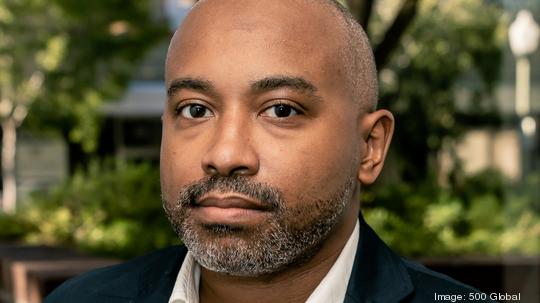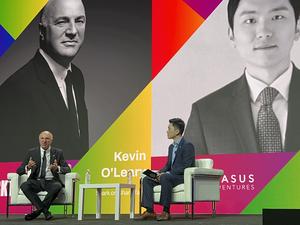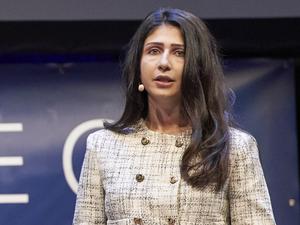
In tandem with its decision last year to rename itself 500 Global, the then-500 Startups decided to broaden its investing beyond pre-seed and seed rounds.
The organization will soon be leading Series A and Series B deals for companies it believes in, said Clayton Bryan, who heads 500's accelerator program and related fund. But one thing won't change as 500 Global gets into a later stage of investing: its strategy of putting money into a wide range of businesses and industries.
Here's another thing that hasn't changed, according to Bryan: Silicon Valley's place in the tech and startup world. Even as other regions around the world are developing into tech hubs in their own right, the San Francisco-San Jose region remains in a class of its own, he said.
Bryan spoke with Bay Area Inno recently about what's happening at 500 Global, the role Silicon Valley plays in the startup ecosystem and today's investment landscape. This interview has been edited for length and clarity.
How much has the startup and venture world changed since you first joined 500 Global?
I’ve been investing for the last 10 years. (In) 2013, 2015, there were Silicon Valley venture funds that would not invest outside the area. There were a lot of general partners that said they would rather ride their bike to board meetings; they didn't want to get on a plane. People took hard stances on that.
But then the pandemic happened, and investors had to get comfortable doing deals over Zoom and video conferencing. And so we saw just a complete change in those sentiments, probably helped out by younger folks matriculating up to the partnership (level) and having different philosophies there.
We've seen other ecosystems pop up across the States and across the world. And I think that'll serve for the betterment of the overall ecosystem. But I still think Silicon Valley, San Francisco, (will continue to be a) tier-one capital city for the tech industry.
Clayton Bryan
- Age: 38
- Title: Head of Accelerator, Accelerator Fund, 500 Global
- Hometown: Oakland
- Education: Bachelor's, UC Berkeley; M.B.A., New York University
- Career path: Worked in a variety of roles at tech firms, including Yahoo Inc., before becoming a partner at Dorm Room Fund, a Philadelphia venture firm. Co-founded Transparent Collective, a San Francisco nonprofit focused on helping underrepresented founders raise early-stage funding. Joined the then-500 Startups in 2016 as a partner.
What up-and-coming cities or regions could rival Silicon Valley?
I wouldn't go so all out and say that (other cities are) rivals to Silicon Valley. They're all interesting ecosystems in their own right. But again, Silicon Valley is here to stay.
And a big part of that is, if you look at the FAANG companies (Facebook Inc. parent Meta Platforms Inc., Apple Inc., Amazon.com Inc., Netflix Inc. and Google LLC parent Alphabet Inc.), most of those companies are still operating here in Silicon Valley as their primary headquarters. And the companies that have the likelihood of (becoming) the next (similar) abbreviation in Big Tech — whatever that might be — those companies are also here.
Why does that matter? Because (companies) like Apple and Netflix and Google, Coinbase, Airbnb, etc., they have the best training programs, whether on the technical side or the product management side. Those are important fixtures in our ecosystem.
What new investment strategies is 500 Global adopting?
We've been operating this accelerator model now for 10-plus years and it's working very well for us. This is the same playbook that Christine Tsai helped to architect back in 2010.
In the past, 500 was not able to lead a Series A or Series B financing, but in the very near future we will be able to do that.
Why are we going in that direction? Because we have a portfolio now that is nearly 2,800 strong (with) 5,000 founders in our network. Many of them are coming back to us saying, "Hey, we love what you did for us when we were early. We love what you did with for us in the accelerator. But now we're looking for a larger check. We're looking for guidance in other areas. And we would love to continue to work with 500. How can we do that?"
Previously we had to say, "Hey, we can't help you directly, (but) we know great folks in our network." But now we can say, "Hey, we do have this other vehicle. Let's talk." Because we already have a strong relationship with these founders, there's that familiarity that we play on.
Now, we have the ability to write larger checks and be meaningful partners at later stages of the development for these businesses.
How has the investment landscape shifted since you started investing?
We've been telling our founders for the last two quarters that fundraising rounds are just taking longer, and it’s really in their best interest to have 18 to 24 months of runway if they can, because we just don't know what 2023 is going to look like.
But we know that the cost of capital is increasing, and we know inflation is rampant. Interest rates are on the rise. So there's a lot of downward pressure that’s affecting our companies' ability to raise. The (initial public offering) window for our tech companies has been very, very slightly open, and IPOs have been going out at a snail's pace. So there's just a lot of things that are problematic.
As a firm, we're generalists, and we like a lot of verticals. We remain active across fintech, insurance tech, sus-tainability tech, climate. We're active in Web3 and crypto. We're active in e-commerce, albeit that's slowing down a little bit, as well as travel, which is coming back, as many folks trying to travel over the summer know very well.
It's difficult to say there's a short list of things I specifically am looking at, because what we are really chasing here at 500 Global is the unicorn, house-hold-name companies of tomorrow.








